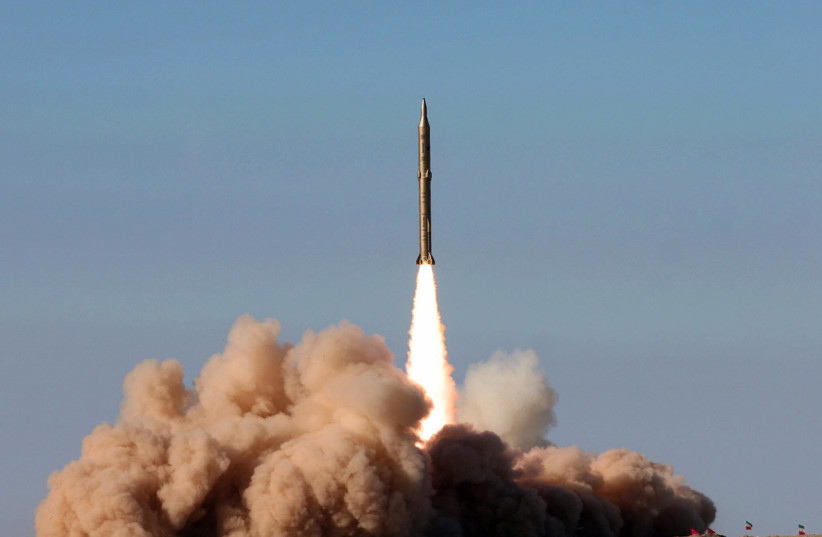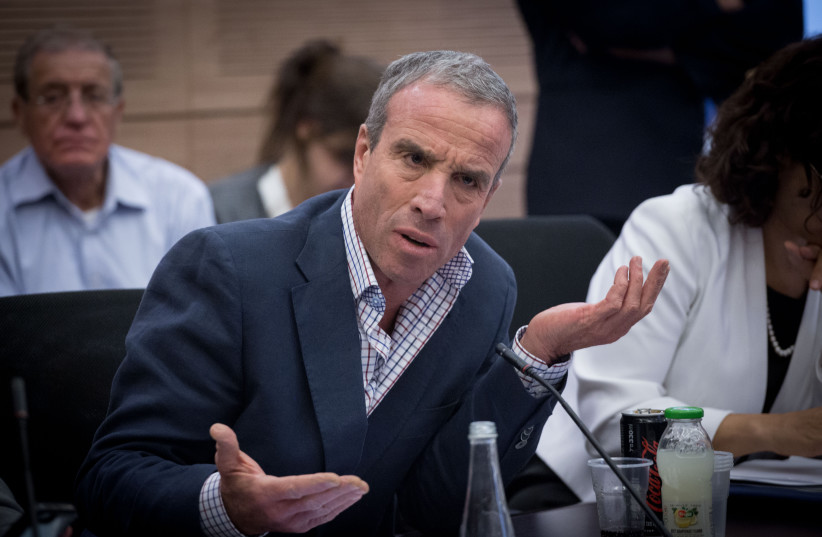by Yonah Jeremy Bob
The Intelligence Ministry on Monday unveiled the country’s first-ever national intelligence estimate report on Monday.
 |
An Iranian missile takes off in 2008 during a test.
(photo credit: AFP VIA GETTY IMAGES)
|
The world is at a transition point analogous to being on the verge of a cliff, after which a series of crises striking simultaneously will reorder the planet’s geopolitics, the place of technology, the economic order and a variety of other disciplines from health to energy, according to Israel's first government national intelligence estimate.
The report was published by the Intelligence Ministry in the vein of the type of reports issued in the United States and other Western countries. A copy was obtained by The Jerusalem Post.
According to the report, the world is at on the verge of a cliff and is likely to be struck by a variety of crises affecting all aspects of life.
Recommendations from a team of eight experts who wrote the report addressed all critical areas related to national power and resilience, including, but going far beyond, mere military power.
These recommendations focused on advancing key geopolitical alliances, serving as a geopolitical and technological bridge between countries and preemptively filling potential gaps in national resilience.
Some of the “danger” areas discussed were health, energy and water.

What did the report say about Israel?
The report also recognized a major change in Israel’s status since evolving from an energy-weak country to energy independent with the fine - in recent decades - of natural gas in its maritime coastal areas.
The recommendations were presented to a special conference on Monday including officials from all of the arms of Israel’s defense and intelligence branches.
A schedule for the closed conference obtained by The Post indicated that an unnamed top intelligence official – usually reserved for Mossad or Shin Bet officials – will present.
Former IDF intelligence chief Amos Yadlin, former National Security Council director Yaakov Amidror, Intelligence Minister Elazar Stern and Intelligence Ministry Director-General Alex Dan as well as some foreign intelligence officials were among the other presenters.
“The state needs to work harder at strengthening national resilience,” explained Intelligence Ministry official Victor Israel who was involved in drafting the report.
Explaining the thinking behind formulating the report, Israel noted that until now, when there was a crisis in an arena like the environment, there has been only limited attention, but that such processes are on the verge of passing a tipping point where the negative impact on society will be far greater than before.
He said that the US issues such a report every four years and that NATO, the European Union, Singapore and large corporations like RAND regularly issue such reports, and that the Israeli intelligence estimate tracked many of those.
The senior intelligence ministry official said that the report was a distinct change for his department which often looked ahead to trends which are 20 years away, whereas this report had a shorter focus with a 10-year outer limit.
In addition, Israel said that the report looked closely at the mutual interaction between the various trends, such as climate change, trust in government institutions, global health, supply chain and economic downturns that could have a cumulative destabilizing effect.
According to the report, it may not be easy for Israel to maintain a geopolitical balance between positive relations with the US, China and Russia as these powers move from open competition to greater conflict.
In many ways, the expectation that these tectonic struggles will replace the war with terror groups like al-Qaeda and ISIS is a disadvantage for Israel. Jerusalem thrived when countries from all corners of the globe looked to it for ideas in how to effectively combat terror.
Yonah Jeremy Bob
Source: https://www.jpost.com/israel-news/article-725248
No comments:
Post a Comment